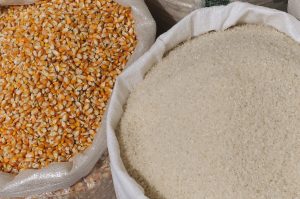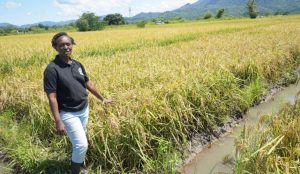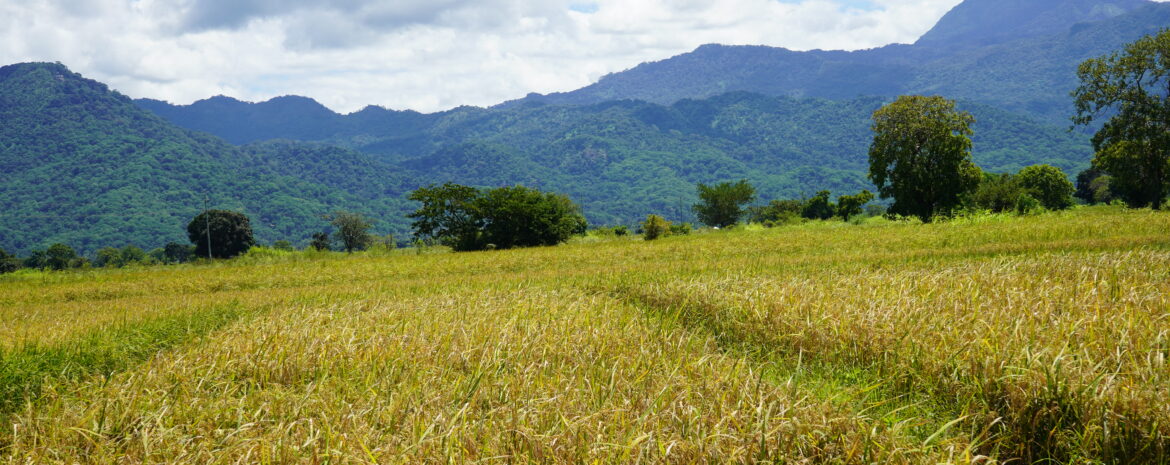A team from the Sokoine University of Agriculture (SUA) and the African Plant Nutrition Institute (APNI) launched a Project focused on fighting hidden hunger through micronutrient fertilization in maize and rice in Tanzania. Micronutrient fertilization plays a crucial role in enhancing the productivity and nutritional quality of crop products. While macro-nutrients such as nitrogen, phosphorus, and potassium have traditionally received more attention in fertilization programs, the importance of micronutrients like zinc (Zn), iron (Fe), copper (Cu), manganese (Mn), and boron (B) are less paid concerned.
Hidden hunger normally occurs from micro-nutrient deficiencies despite of the supply of sufficient caloric intake. This can lead to serious health issues like anemia, stunted growth, and impaired cognitive development. Consequently, the project targets to streamline micro-nutrient fertilization to guide micro-nutrient fertilizer formulations, increase agricultural productivity of maize and rice, among the two main staple crops in Tanzania, and contribute to alleviating hidden hunger in line with African Plant Nutrition Research Fund (APNRF) themes. To enhance the yield and quality of these grains, the project aims to optimize the supplementation of Zinc (Zn) and iron (Fe) in addressing existing hidden hunger effectively.

Maize and rice are pivotal in combating malnutrition in Tanzania due to their status as staple foods, providing essential calories and other essential nutrients to a large portion of the population. However, micronutrient deficiencies contribute to a range of health issues, affecting both physical and cognitive development, particularly among vulnerable groups such as children and pregnant women. Approximately 32% of children under the age of five in Tanzania were reported to experience stunted growth. Moreover, due to iron deficiency, over 50% of pregnant women are anemic, which is a major risk factor for maternal mortality.
In rice cultivation fields, micronutrient deficiencies such as zinc and iron are prevalent, especially in flooded or waterlogged conditions that can affect nutrient availability and hence significantly reduce yield. Zinc deficiency in rice manifests as stunted growth, chlorosis, and poor root development, while Iron deficiency results in interveinal chlorosis on young leaves, reducing chlorophyll and stunting growth.

Dr. Nyambilila Amuri, a Project member and the principal College of Agriculture, explained the treatments in the rice field trial plots.
In maize cultivation, zinc and iron deficiency is a common issue in Tanzanian soils, particularly in highly weathered soils with low organic matter content. Iron deficiency in Tanzania’s maize cultivation leads to interveinal chlorosis, particularly in young leaves, resulting in reduced chlorophyll production and impaired photosynthesis. This deficiency stunts plant growth and decreases yields. Zinc also is vital for enzyme function, protein synthesis, and growth regulation.

To address micronutrient deficiency, the project initiative begins with an analysis of soil and grains to determine the micronutrient status in the Morogoro region in Tanzania. The development of effective methods to add these nutrients to the soil, and promoting healthier crops and better-quality grains are the main targets. Additionally, the project explores the effect of microbial inoculants aiming to aid in nutrient absorption by plants to provide optimal results.
Regular soil testing, appropriate fertilization practices, and integrated soil fertility management are key components in ensuring the availability of essential micronutrients for optimal crop growth and yield. Enhancing yields and resilience against pests and diseases helps stabilize food supplies, improve nutrition, and support the livelihoods of Tanzanian farmers. Alongside these efforts, training will be provided to local farmers and workers, equipping them with the knowledge and skills needed for sustainable agricultural practices.
For more information CLICK HERE
Golden Grains: Cultivating Rice And Maize Health In Tanzanian Fields

Sokoine University of Agriculture
Share this page




